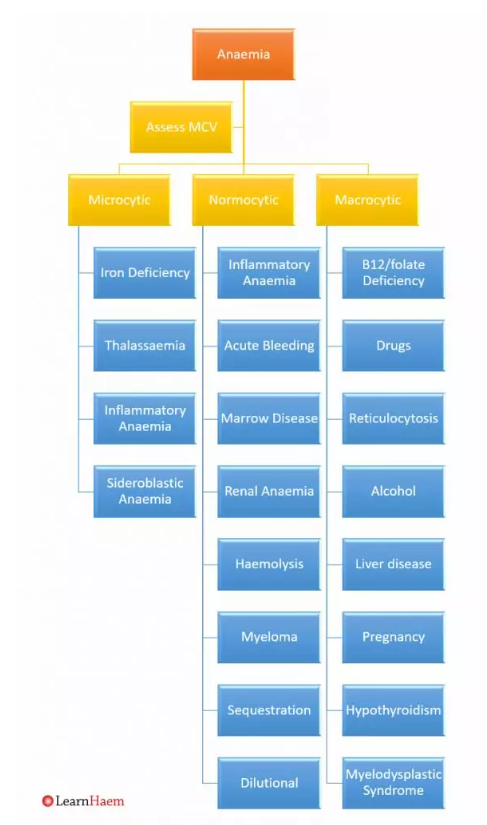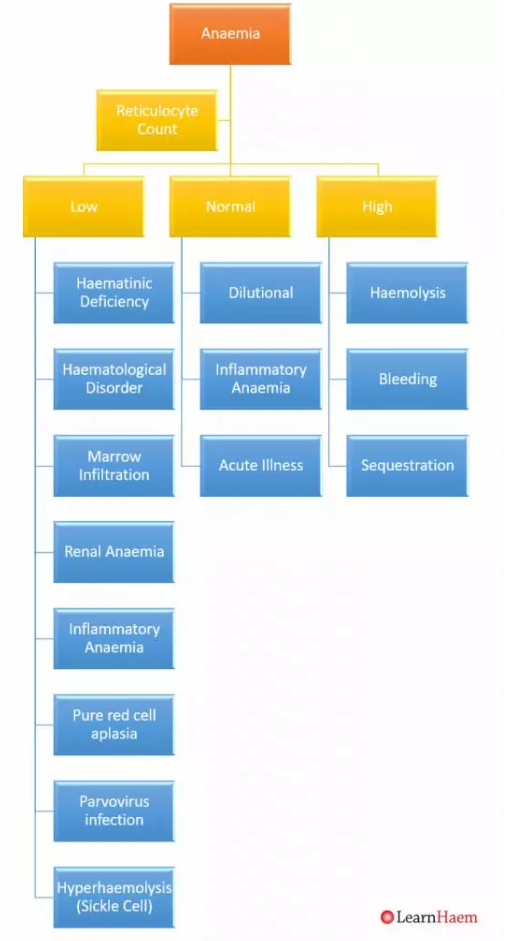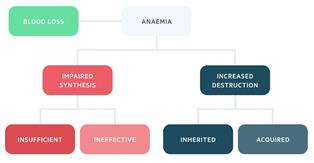Anaemia Aetiological Classification
The aetiological approach addresses the underlying mechanism
leading to the reduction in Hb concentration.
Aetiologically, causes can be arranged into three groups:
RBC production: reduced
RBC destruction: increased
Blood loss overall
Anaemia Classification
Causes of anaemia can be classified based upon
Morphology then Aetiology
|
|
|
Blood loss overall |
RBC production: Impaired
|
RBC destruction: increased
|
Morphological
The morphological approach categorises anaemia
based on the size of RBCs (e.g. the mean corpuscular volume).
This approach arranges anaemia into three groups:
Microcytic (small RBCs)
Normocytic (normal sized RBCs)
Macrocytic (large RBCs)
|
|
|
Microcytic (small RBCs) |
Normocytic
(normal sized RBCs) |
Macrocytic
(large RBCs) |


Mechanistic approach to anaemia
Approach to haemolytic anaemia
Classification of haemolytic anaemia
The morphological classification
is based on an understanding of erythropoiesis; however,
it falls short in the wide differential
for a normocytic, normochromic anaemia,
Morphological approach to anaemia
Causes of microcytosis
Causes of macrocytosis



The mechanistic classification
relies on the principle that red blood cells cannot just disappear
Anaemia results from one of 4
1. Sequestration or dilution
(remember, haemoglobin is measured as a concentration).
2. Blood loss
3. Impaired synthesis
4. Increased Destuction,

The Reticulocyte Count
Reflects production Either the problem or
Increased to compensate for increased destruction





